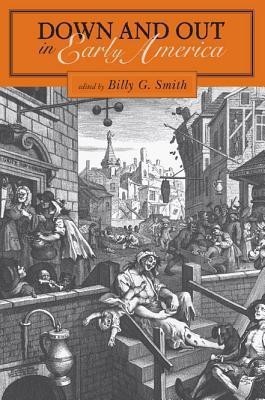Down and Out in Early America(English, Hardcover, unknown)
Quick Overview
Product Price Comparison
It has often been said that early America was the "best poor man's country in the world." After all, wasn't there an abundance of land and a scarcity of laborers? The law of supply and demand would seem to dictate that most early American working people enjoyed high wages and a decent material standard of living. Down and Out in Early America presents the evidence for poverty versus plenty and concludes that financial insecurity was a widespread problem that plagued many early Americans. The fact is that in early America only an extremely thin margin separated those who required assistance from those who were able to secure independently the necessities of life. The reasons for this were many: seasonal and cyclical unemployment, inadequate wages, health problems (including mental illness), alcoholism, a large pool of migrants, low pay for women, abandoned families. The situation was made worse by the inability of many communities to provide help for the poor except to incarcerate them in workhouses and almshouses. The essays in this volume explore the lives and strategies of people who struggled with destitution, evaluate the changing forms of poor relief, and examine the political, religious, gender, and racial aspects of poverty in early North America. Down and Out in Early America features a distinguished lineup of historians. In the first chapter, Gary B. Nash surveys the scholarship on poverty in early America and concludes that historians have failed to appreciate the numerous factors that generated widespread indigence. Philip D. Morgan examines poverty among slaves while Jean R. Soderlund looks at the experience of Native Americans in New Jersey. In the other essays, Monique Bourque, Ruth Wallis Herndon, Tom Humphrey, Susan E. Klepp, John E. Murray, Simon Newman, J. Richard Olivas, and Karin Wulf look at the conditions of poverty across regions, making this the most complete and comprehensive work of its kind.


